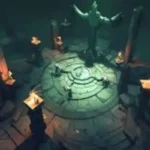Wrongful Death in Criminal and Civil Court: Can You Sue After a Criminal Case?
When a loved one is taken from you by someone else’s reckless or violent actions, the legal system may feel like both a lifeline and a labyrinth. A criminal trial might result in jail time for the offender, but it often leaves families with lingering questions—and financial devastation. What happens if the criminal justice system doesn’t fully deliver justice? Can you still take legal action?
The answer is yes. Criminal court and civil court are two distinct processes. While a criminal conviction punishes the defendant for breaking the law, a civil wrongful death lawsuit focuses on compensating the victim’s family for their unimaginable loss. Even if the criminal case fails or results in a plea deal, a civil claim offers families a separate and often more empowering path to justice.
Criminal Court vs. Civil Court: Different Goals, Different Outcomes
The purpose of a criminal case is to determine whether the defendant violated the law and, if so, to impose penalties such as prison, fines, or probation. The government brings these charges—not the victim’s family—and the burden of proof is high. Prosecutors must prove the defendant’s guilt “beyond a reasonable doubt.”
In contrast, a civil wrongful death claim is initiated by the surviving family members. The goal is not to punish but to compensate for the loss of life and the impact on those left behind. The standard of proof is lower—”preponderance of the evidence”—meaning the family only needs to show it’s more likely than not that the defendant was responsible. This difference has allowed families to win civil suits even when criminal charges failed.
You Don’t Have to Wait for a Criminal Case to End
Many families believe they must wait for the outcome of a criminal trial before filing a civil lawsuit. In reality, you can pursue a wrongful death claim while the criminal case is still ongoing. In some cases, parallel proceedings allow both to move forward, offering families a faster route to financial support.
There are also strategic reasons to act early. Civil cases involve gathering time-sensitive evidence—surveillance footage, eyewitness testimony, or accident scene details—that may deteriorate or disappear over time. Filing promptly protects your rights and ensures your case is built on the strongest possible foundation.
When the Criminal System Falls Short, Civil Court Can Still Deliver
A not-guilty verdict in criminal court does not mean the accused is innocent in the eyes of civil law. Because the standards of proof are different, families can still win a wrongful death lawsuit even if prosecutors fail to secure a conviction. The most famous example of this is the O.J. Simpson case, where he was acquitted in criminal court but found liable for wrongful death in civil court.
In civil proceedings, the focus shifts from intent to responsibility. You don’t have to prove the defendant meant to cause harm—only that their actions or negligence caused a death. For many families, this is a more achievable and emotionally validating path toward justice.
Who Can File a Wrongful Death Lawsuit?
California law allows certain individuals to file a wrongful death claim. These include the deceased person’s spouse, children, domestic partner, or, in some cases, other financially dependent relatives like stepchildren or parents. The lawsuit can include claims for financial losses, funeral expenses, emotional suffering, and lost companionship.
Understanding your eligibility to file is crucial, as is determining who should be the official claimant if multiple family members are involved. A wrongful death attorney in Ontario can help families coordinate their claims, avoid delays, and present a united front in court.
Financial Compensation Offers Accountability When Criminal Penalties Don’t
While civil court cannot imprison the defendant, it can hold them financially accountable in a way that directly benefits the family. Damages in a wrongful death case may include lost income from the deceased, loss of household support, therapy expenses, and emotional grief. In some cases, punitive damages may also be awarded if the defendant’s behavior was especially egregious.
These damages are more than numbers—they are recognition of what was taken from the family and what it will take to rebuild. For many, financial compensation provides the resources needed to begin healing and to preserve the memory of their loved one in meaningful ways.
Wrongful Death Claims Can Target More Than One Person or Entity
In some cases, multiple parties may share responsibility for a death. A drunk driver may be criminally charged, but a bar that overserved them could also be held liable in civil court. A violent crime might also involve a property owner who failed to provide adequate security, or a business that ignored warning signs.
Pursuing a wrongful death claim allows families to investigate all contributing factors. Civil lawsuits are broader in scope than criminal trials and can bring systemic issues to light—whether they involve corporate negligence, unsafe conditions, or failure to act when danger was foreseeable.
Your Time to Act Is Limited
California’s statute of limitations for wrongful death claims is generally two years from the date of the person’s passing. If you wait too long, you may lose your right to pursue compensation, regardless of how strong your case is. This is especially important if you’re waiting on a criminal trial, which can stretch on for years.
Acting quickly protects your legal position and ensures evidence is preserved. A compassionate legal team can guide you through the process while honoring your need for space, grief, and time to process your loss. Justice should not come at the cost of compassion—and you don’t have to face it alone.







